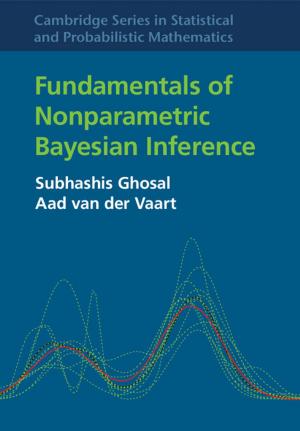Hadrons at Finite Temperature
Nonfiction, Science & Nature, Science, Physics, Nuclear Physics, Mathematical Physics| Author: | Samirnath Mallik, Sourav Sarkar | ISBN: | 9781108105873 |
| Publisher: | Cambridge University Press | Publication: | October 27, 2016 |
| Imprint: | Cambridge University Press | Language: | English |
| Author: | Samirnath Mallik, Sourav Sarkar |
| ISBN: | 9781108105873 |
| Publisher: | Cambridge University Press |
| Publication: | October 27, 2016 |
| Imprint: | Cambridge University Press |
| Language: | English |
High energy laboratories are performing experiments in heavy ion collisions to explore the structure of matter at high temperature and density. This elementary book explains the basic ideas involved in the theoretical analysis of these experimental data. It first develops two topics needed for this purpose, namely hadron interactions and thermal field theory. Chiral perturbation theory is developed to describe hadron interactions and thermal field theory is formulated in the real-time method. In particular, spectral form of thermal propagators is derived for fields of arbitrary spin and used to calculate loop integrals. These developments are then applied to find quark condensate and hadron parameters in medium, including dilepton production. Finally, the non-equilibrium method of statistical field theory to calculate transport coefficients is reviewed. With technical details explained in the text and appendices, this book should be accessible to researchers as well as graduate students interested in thermal field theory.
High energy laboratories are performing experiments in heavy ion collisions to explore the structure of matter at high temperature and density. This elementary book explains the basic ideas involved in the theoretical analysis of these experimental data. It first develops two topics needed for this purpose, namely hadron interactions and thermal field theory. Chiral perturbation theory is developed to describe hadron interactions and thermal field theory is formulated in the real-time method. In particular, spectral form of thermal propagators is derived for fields of arbitrary spin and used to calculate loop integrals. These developments are then applied to find quark condensate and hadron parameters in medium, including dilepton production. Finally, the non-equilibrium method of statistical field theory to calculate transport coefficients is reviewed. With technical details explained in the text and appendices, this book should be accessible to researchers as well as graduate students interested in thermal field theory.















